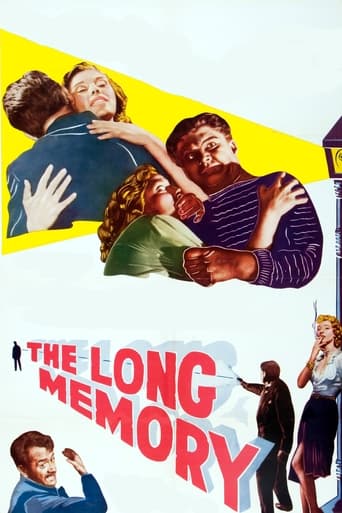Leofwine_draca
A pretty good little British thriller which I happened to catch, unexpectedly, on television late one morning. John Mills (slightly miscast as a rough type) plays a guy fresh from doing a 12-year-stretch who decides to get revenge on those who were responsible for him being locked up for all those years. Yes, it's an overly-familiar story still being utilised even today (in the likes of OLDBOY), but it does well with the set-up.Mills sets up a kind of temporary home or shelter on some rotting hulks out on the mudflats and it's a highly effective place to build atmosphere. Sadly, the thriller aspects of the story are slightly less compelling than I was hoping for, although the characterisation is strong. Mills is the consummate professional and the supporting cast give some choice performances, including an early turn for James Bond's M, Geoffrey Keen. There are some great slices of action and chase scenes towards the climax which help to build excitement and make this a solid effort for the British studios of the era.
wes-139
John Mills tracks down the real culprit of the murder he was sent to jail for in this tense British drama of exile and return. The real murderer is now a comfortable businessman, and the visual contrasts between his dubious offices in the London docks and Mills' derelict boat far out on the river estuary gives a resonance to the film it would be hard to find in a modern setting. Freed from jail but still imprisoned by the past, Mills' character spurns the touching companionship of another refugee on the Kent marshes (Eva Bergh) about whose past we know nothing, but it seems to be destiny that has brought them together. This is one of the few films that resolves a labyrinthine revenge-story without the plot becoming mechanical, and the bleak monochrome visuals are part of its emotional power.
jugh
I have seen "The Long Memory" twice, and was sufficiently impressed (and like John Mills) that I bought the book when I found it. After seeing the film a second time I then started reading the book. To my delight (that's how I like films) it was close to the film, and I realized that much of the quality of the film, beyond its strong visual imagery of London dockside slums, damaged by the Blitz (you have to know this: there is no sign saying "house flattened by bomb"), and post- war austerity (rationing continued in Britain into the early 1950s!), is directly due to the book author Howard Clewes (about whom little is available on the internet).Despite not LOOKING like the author described him, John Mills acts the character described by the author, as do the rest of the cast.The post-World-War-II setting is crucial to appreciating the bleakness of the film. Life was tough then, for many British, and even more so for Displaced People -- war survivors and immigrants from Europe. Petty crime was rife. In fact things were probably tougher than during the flashback sequence to the Depression, when the young Mills character is accidentally drawn into cross-Channel smuggling of wanted criminals, and contraband.The old "beachcomber's" singing of a traditional English folksong is a haunting addition to the film that does not appear in the book.
Neil-117
Crime, punishment, revenge, love and redemption are the big themes of this short movie. The moral bleakness surrounding John Mills, as a man unjustly jailed and now seeking revenge, is reflected in the powerfully stark black and white landscape images which accompany the action. But the issues are far from black and white - the guilty, the innocent and even the investigating policeman are all caught up in the moral dilemmas explored by this clever and thoughtful script. Ultimately all the characters learn that punishment can take many forms, in a conclusion which is both gripping and surprising.It's not light entertainment, but don't be put off by its serious tone and gritty subject matter. Once seen, this movie will live long in your memory.


